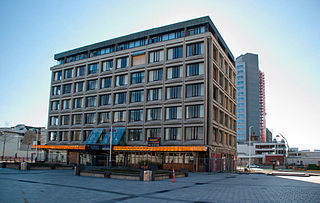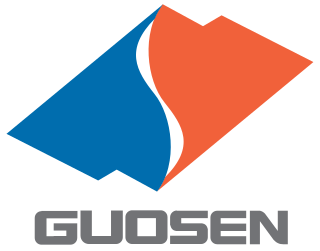Related Research Articles

The Four Asian Tigers are the economies of South Korea, Taiwan, Singapore and Hong Kong. Between the early 1960s and 1990s, they underwent rapid industrialization and maintained exceptionally high growth rates of more than 7 percent a year.

The Asian financial crisis was a period of financial crisis that gripped much of East Asia and Southeast Asia beginning in July 1997 and raised fears of a worldwide economic meltdown due to financial contagion.
D. E. Shaw & Co., L.P. is a multinational investment management firm founded in 1988 by David E. Shaw and based in New York City. The company is known for developing complicated mathematical models and sophisticated computer programs to exploit anomalies in the market. D. E. Shaw & Co. manages $50 billion in AUM, $30 billion of which are alternative investments and the remaining $20 billion long-oriented investments. In 2018, Institutional Investor reported that among hedge funds, D. E. Shaw & Co. had delivered the fifth-highest returns in the world since its inception.
Sequoia Capital is an American venture capital firm. The firm is headquartered in Menlo Park, California and mainly focuses on the technology industry. It has backed companies that now control $1.4 trillion of combined stock market value. Sequoia manages multiple investment funds including funds specific to India & Southeast Asia, Israel, and China. The firm has offices in Menlo Park, Singapore, Bengaluru, Mumbai, New Delhi, Hong Kong, Shanghai, Beijing, London and Tel Aviv.

Nomura Securities Co., Ltd. is a wholly owned subsidiary of Nomura Holdings, Inc. (NHI), which forms part of the Nomura Group. It plays a central role in the securities business, the Group's core business. Nomura is a financial services group and global investment bank. Based in Tokyo and with regional headquarters in Hong Kong, London, and New York, Nomura employs about 26,000 staff worldwide. It operates through five business divisions: retail, global markets, investment banking, merchant banking, and asset management.

The Shanghai Commercial Bank is an international bank based in Hong Kong. Its subsidiary companies offer banking and financial services across the world, but mainly in China, the United Kingdom, and the United States. The bank was founded by Chen Guangfu in 1915.

Guotai Junan Securities Co., Ltd. (GTJA) is one of the largest investment banks and securities companies in the People's Republic of China.
Peregrine was an investment company based in Hong Kong. It was liquidated following the downturn of the Indonesian economy during the Asian financial crisis, and was acquired by BNP Paribas.

The Hong Kong Science and Technology Parks Corporation (HKSTP) is a public corporation set up by the Hong Kong Government in 2001 to foster the development of innovation and technology in Hong Kong.
Asian bond markets are growing rapidly as Asian borrowers switch away from short term bank loans towards longer term debt financing. Although Asia also includes countries of the Middle East, some CIS countries and the vast majority of the land mass of Russia and Turkey, in financial markets it is often only East Asia and South Asia that are included in the term.

Korea Development Bank is a wholly state-owned policy development bank in South Korea. It was founded in 1954 in accordance with The Korea Development Bank Act to finance and manage major industrial projects to expedite industrial development of Korea. As a 61st biggest global bank, KDB Bank has not only fostered the growth of strategic industries but also facilitates the turnaround of troubled companies through restructuring and provides capital for strategic development projects. Since 2000, it has diversified into investment banking services and operates as a CIB. Nevertheless, it is a major restructuring player and has saved a lot of big companies during major financial crisis, especially in 1997 Asian financial crisis and Financial crisis of 2007–2008.

China International Capital Corporation Limited is one of China's leading investment banking firms that engages in investment banking, securities, investment management, and other financial services primarily with institutional clients.

The Colonial Mutual Life Assurance Society Limited, later Colonial Limited, and commonly known as Colonial Mutual, Colonial Mutual Life, and/or CML, was a diverse international financial services company headquartered in Melbourne, Australia. Colonial's core businesses were life and general insurance, retirement savings, banking and funds management. The company operated in the United Kingdom, New Zealand and the Fiji Islands for more than a century.

Guosen Securities Company Limited is a Chinese state-owned financial services company headquartered in Shenzhen, China, with more than 70 branches and 11,500 employees nationwide. It has offices in 47 major cities in China including Shenzhen, Beijing, Guangzhou, Foshan, Nanjing, Shanghai, Tianjin and Hong Kong. Guosen Securities provides sales and trading, investment banking, research, asset management, private equity, and other financial services with both institutional and retail clients in China and Hong Kong. It also operates a trading platform called GuoXin TradingStation.

Qianhai Shenzhen-Hong Kong Modern Service Industry Cooperation Zone is a commercial development in Shenzhen, Guangdong that is also known as Qianhai New District. Located in Nanshan District and encircled by the Shuangjie River, Yueliangwan Boulevard, Mawan Boulevard and Qianhai Bay, Qianhai covers an area of approximately 15 square kilometres (5.8 sq mi), comprising almost entirely reclaimed land. The project is expected to be completed by 2020.

Financial technology is the technology and innovation that aims to compete with traditional financial methods in the delivery of financial services. It is an emerging industry that uses technology to improve activities in finance. The use of smartphones for mobile banking, investing, borrowing services, and cryptocurrency are examples of technologies aiming to make financial services more accessible to the general public. Financial technology companies consist of both startups and established financial institutions and technology companies trying to replace or enhance the usage of financial services provided by existing financial companies.

Tradeweb Markets Inc. (Tradeweb) is an international financial services company that builds and operates electronic over-the-counter (OTC) marketplaces for trading fixed income products, ETFs and derivatives. The company was co-founded in 1996 by Lee Olesky and Jim Toffey. Its customers include banks, asset managers, central banks, pension funds and insurance companies. It is known for having used technology to move the bond-trading market towards greater efficiency and transparency for institutions that trade fixed income and derivatives products.
Francis Pike is a British historian and business, economic and political advisor. He lived and worked for 20 years in Japan, China and India and has advised financial institutions as well as governments in Japan, Australia, India, China, Singapore, Bangladesh, Europe, the Middle East and the United States. In 1989 Pike was responsible for setting up the first development capital fund investing in the countries of Eastern Europe. As a historian he has specialized in the relationship between the United States and Asia. His first book, Empires at War, A Short History of Modern Asia since World War II [2010], was followed by a prequel, Hirohito's War, The Pacific War 1941-1945 [2015]. Hirohito’s War has been described as the definitive one volume history of the Pacific War and has been favorably reviewed in journals such as The Spectator, The New Statesman, Foreign Affairs, Military History Monthly, World War II History Magazine and Publishers Weekly.
Established in 2011, the Renminbi Qualified Foreign Institutional Investor (RQFII) program is a policy initiative that allows foreign investors who hold the RQFII quota to invest directly in Mainland China’s bond and equity markets. The program represents a continued loosening of China’s capital controls and departure from its predecessor QFII. The RQFII program relaxes existing restrictions on currency settlement, adds permissible asset classes, and expands investor eligibility. The current RQFII relevant jurisdiction applies to financial organizations registered in Hong Kong, Singapore, the United Kingdom, France, Korea, Germany, Australia, Switzerland, Canada, the United States and Luxembourg.

Innovation and Technology Bureau (ITB) is one of the policy bureaus under the Government Secretariat of the Government of Hong Kong and is responsible for policy matters on the development of innovation and technology and information technology which are the key drivers in this endeavour. The Bureau is led by the Secretary for Innovation and Technology, currently Alfred Sit Wing-hang.
References
- 1 2 Nathan Vardi (2011-07-07). "How A Notorious Banker Left Intellectual Ventures With A Poorly Performing Fund". Forbes. Retrieved 2014-05-08.
- ↑ Edward A. Gargan (1998-01-13). "Hong Kong's Peregrine Soared Like a Falcon, Sank Like a Reckless Bank". The New York Times. Retrieved 2014-05-08.
- 1 2 3 4 5 Erik Guyot; Jon E. Hilsenrath (13 January 1998). "Going Nova: How Peregrine Rose And Fell With a Star In Bond Trading --- Like the Hong Kong Bank, Andre Lee Was Soaring Until Currencies Tanked --- Grousing About 'Eurofags'".
- ↑ Allen T. Cheng (August 1999). "Life After Peregrine".
- 1 2 Jon E. Hilsenrath; Erik Guyot (13 January 1998). "Scourge of 'Eurofags': Like Peregrine, Andre Lee Soared Until Crisis Erupted". The Asian Wall Street Journal.
- 1 2 Robert Steiner (14 April 1994). "Battle Heats Up for Asian Finance Staff --- Poaching Proliferates as Companies Rush to Build Regional Presences". The Asian Wall Street Journal.
- ↑ Malcolm Surry (1 March 1998). "One crash too many". Asian Business.
- 1 2 Peter Lee (April 1998). "Peregrine's Last Days".
- 1 2 Moon Ihlwan (July 10, 2000). "Seoul's Web Spawns a Comeback Kid".
- ↑ Jason Nisse (13 January 1998). "Peregrine's short flight and spectacular fall – Peregrine Investments". The Times.
- ↑ "Hubris left out basics". South China Morning Post. 28 March 2001.
- ↑ "The philosophical Mr Lee". Asiamoney. 1 November 1999.
- 1 2 3 Emiko Terazono (19 October 2000). "SOUTH KOREA 7 – Online Cupid for investors PROFILE – ANDREW LEE". Financial Times.
- ↑ Richard Irving. (26 June 2000). "Peregrine's Lee to back bond venture". The Financial News.
- ↑ "Report on Proceedings and Findings" (PDF). International Commercialization Alliance. May 2011. Archived from the original (PDF) on 2014-05-22. Retrieved 2014-05-08.